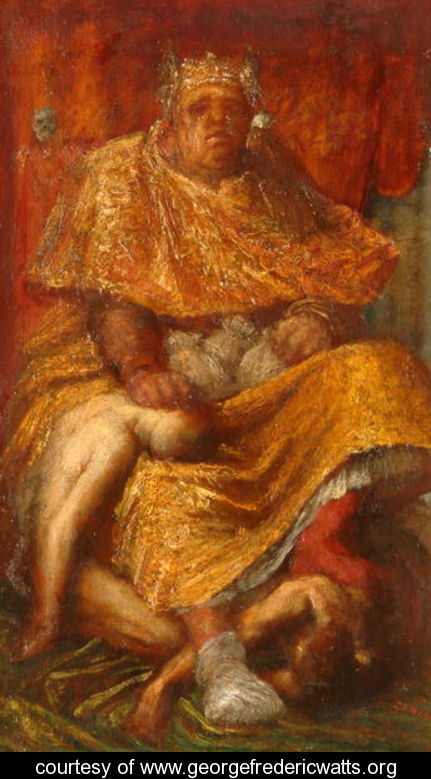The Gospel and Wealth: Can the Rich Be Saved? – by Mark H. Rich

See Philip Vinod Peacock’s Essay, “Can the Rich be Saved?”
See Jermaine J. Marshall’s Essay, “Gospel and Wealth: The Wickedness of Wealth in American Capitalism”
Exploring a classic question
I hope this classic Christian question from Clement of Alexandria and Tertullian will be for you, dear readers, the bracing, refreshing drink of cold water that it is for me. The Spiritual Dark Age (the SDA) we currently inhabit delights in parading the grotesque wealthy as the models the rest of us should all desire, envy, emulate, and fail to attain, thereby richly deserving all the punishments and privations the wealthy and their paid politicians and judges can heap upon us. Does anyone remember the US television program “Lifestyles of the Rich and Famous”, for which the motto spoken every week at the end was, “Champagne kisses and caviar dreams”? Yuck! The whole point of that stupid show from the 1980s – the cultural beginning in many ways of the current SDA – along with the current show “The Apprentice” is to change people’s sense of taste, to make the middle classes envy, love, and slavishly emulate their ‘betters’.
And emulate we have. Under the influence of the unprecedented cultural power of modern media, the chase for excess has become normal. It has become what life is about and is supposed to be about for middle class Americans. The very few who deliberately eschew excess (http://www.msnbc.msn.com/id/3032619/ns/nightly_news/ ) may do little more to the zeitgeist than to backlight with irony the normal excess of the rest of the middle classes. And to the Church’s shame we have not sufficiently protested as the god of this world has perverted the holy celebration of Christmas into the festival of shopping. Shoppingmas.
This problem of excess possessions obscuring the gospel dates all the way back to Jesus’ own mission. His proclamation to the rich young man (Mark 10:17-22) is the signal failure of his whole ministry, yet even so Jesus held out hope that God could yet produce miracles even with the wealthy – a miracle greater than raising the dead or walking on stormy seas.
How do we live faithfully with our possessions?
What to do with our possessions, how to live with each other, can the rich be saved – these are key human questions that the gospel of Jesus Christ answers. So let’s hear again from a very few of the many, many faithful witnesses to the authentic gospel about wealth, namely “It is easier for a camel to go through the eye of a needle than for the wealthy to enter the kingdom of God” and “You cannot serve God and wealth.” (The indispensable resource here, aside from the New Testament, is of course Faith and Wealth by Justo Gonzalez).
I think the most important place to start is with this quote from Tertullian: “Family possessions, which generally destroy brotherhood among you [pagans], create brotherly bonds among us [Christians]. One in mind and soul, we do not hesitate to share our earthly goods with one another. All things are common among us but our wives.” Tertullian is to be criticized for his execrable view of women, but not for his view of wealth. He rightly states here the whole purpose and goal of all possessions: to create fraternitas. This is why we have things, in order to share them. The one thing that the rich young man lacked was the poor. He used his wealth to keep the poor away, to destroy the bond of his common humanity with them. And by excluding the poor he also kept God away.
God loves the poor and holds them in high esteem. “…[A]s it is with God himself, a particular respect is shown [among Christians] to the lowly” (Tertullian again). Luther described so well our love of the rich and disdain of the poor that he could have written his treatise on the Magnificat in 2011. “Every one strives after that which is above him, after honor, power, wealth, knowledge, a life of ease, and whatever is lofty and great. And where such folk are, there are many hangers-on, all the world gathers round them, gladly yields them service, and would be by their side and share in their high estate. … On the other hand, no one is willing to look into the depths with their poverty, disgrace, squalor, misery and anguish. From these all turn away their eyes. Where there are such folk, everyone takes to his heels, forsakes and shuns and leaves them to themselves; no one dreams of helping them nor of making something out of them. Therefore, to God alone belongs that sort of seeing that looks into the depths with their need and misery, and is close to all who are in the depths; as St. Peter says, ’God resists the proud, but to the humble he gives grace.’”
This explains perfectly why the Republicrats who inhabit the Vanity Fair commonly known as Washington DC came to such common accord over giving still more goodies to the rich for two more years while giving bare necessities to some of the unemployed for only 13 months and nothing at all to the millions of long-term unemployed – all of this to be paid for by un-named future generations. What love for the wealthy! What hatred of the poor! And what contempt for God!
The goal of our love for the wealthy
As Lactantius observed, “For God, who has not given wisdom to other animals, has made them safer from attack in danger by natural defenses. But because He made humans naked and defenseless that He might instead furnish them with wisdom, He gave them besides other things this feeling of piety, that humans should protect, love, and cherish humans, and both receive and afford assistance against all dangers. Therefore kindness [humanitas – human feeling] is the greatest bond of human society; and he who has broken this is to be deemed impious.” “Be bountiful to the blind, the feeble, the lame, the destitute, who must die unless you bestow your bounty on them.”
Luther rightly put an end to the ghastly trade in sins and good works that had developed in the Church over the centuries, which often imagined God as little more than a cosmic spiritual bean-counter. But the Church’s spiritual bean-counting, while losing sight of the whole transformation of the gospel, still kept some sight of the real merits of good works to the poor. In our modern rush to do good works to the rich, we no longer have even a dysfunctional penitential system to remind us of the spiritual harm we do ourselves and the whole society, indeed the whole earth, through harming the poor.
Yes, Virginia, there is a God, and God can save us – even the rich among us – by converting our hearts, souls, strength, and minds toward the mutual love for which God has created us. Surely the resurrection cannot be far behind this miracle. But something first has to be crucified, and it can’t be the poor, for we’re already doing that to them.
See Philip Vinod Peacock’s Essay, “Can the Rich be Saved?”
See Jermaine J. Marshall’s Essay, “Gospel and Wealth: The Wickedness of Wealth in American Capitalism”

